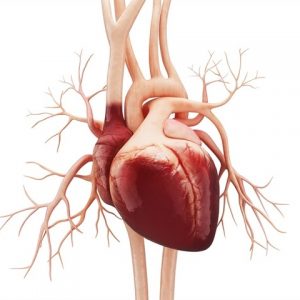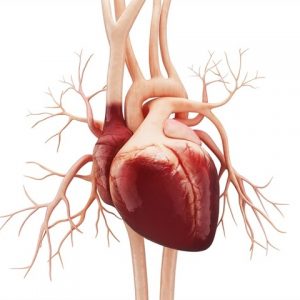

Mavacamten improves heart function and symptoms in patients with obstructive hypertrophic cardiomyopathy, according to results of the EXPLORER-HCM trial presented in a Hot Line session today at ESC Congress 2020.
The results of this pivotal trial support a role for disease-specific therapy for obstructive hypertrophic cardiomyopathy (HCM) which treats the cause instead of just managing symptoms.“
Iacopo Olivotto, Professor and Principal Investigator, Careggi University Hospital
HCM affects approximately 1 in 500 people. It is defined by left ventricular hypertrophy that cannot be explained by another cardiac or systemic disease.
The majority of HCM patients have obstructive HCM, where a combination of cardiac hypertrophy, excess contractility and abnormal movement of the mitral valve blocks or reduces blood flow from the left ventricle to the aorta – called left ventricular outflow tract (LVOT) obstruction.
Common symptoms include dyspnoea, atypical chest pain, palpitations, fatigue, and feeling lightheaded or fainting. Some people have few or no symptoms.
But for others, HCM is a debilitating and life-changing disease resulting in physical limitations and lower quality of life. In some patients, the left ventricular remodelling progresses to refractory heart failure.
Currently available medical treatments focus on symptom relief and fail to address the underlying causes of obstructive HCM. These non-specific agents often have modest efficacy or substantial side effects.
Surgical septal myectomy and alcohol septal ablation are efficacious but carry the risks inherent to invasive procedures and require specific expertise that is not always available. Therefore, an effective pharmacological therapy for obstructive HCM is an important unmet need.
Mavacamten is a first-in-class cardiac myosin inhibitor that directly targets the underlying pathophysiology of HCM and restores the heart’s normal function.
In early clinical trials, treatment with mavacamten led to significant improvements of symptoms, physical function, exercise capacity, and quality of life, and reduced LVOT obstruction in patients with obstructive HCM.
EXPLORER-HCM was a pivotal, global, phase 3, randomised, placebo-controlled clinical trial that tested the efficacy and safety of mavacamten in treating symptomatic obstructive HCM. A total of 251 patients received once daily mavacamten or placebo for 30 weeks. The endpoints were chosen to examine exercise capacity, symptoms, LVOT obstruction, functional status, and quality of life.
The primary endpoint assessed the treatment effect of mavacamten at week 30 relative to placebo on both symptoms and cardiac function.It was defined as achieving 1) ≥1.5 mL/kg/min improvement in peak oxygen consumption (peak VO2) and ≥1 New York Heart Association (NYHA) class reduction OR 2) ≥3.0 mL/kg/min improvement in peak VO2 and no worsening of NYHA class.
Secondary endpoints included change from baseline to week 30 in post-exercise LVOT gradient and patient-reported outcomes such as the Kansas City Cardiomyopathy Questionnaire-Clinical Summary Score (KCCQ-CSS) and HCM Symptom Questionnaire-Shortness-of-Breath (HCMSQ-SoB) subscore.
At week 30, 45 (36.6%) patients on mavacamten met the primary composite endpoint versus 22 (17.2%) on placebo (p=0.0005). All secondary endpoints, including post-exercise LVOT gradient and patient-reported outcomes, also demonstrated statistically significant improvements for mavacamten as compared to placebo (all p<0.0006).
Safety and tolerability with mavacamten were similar to placebo. Some 11 serious adverse events were reported in 8.1% of patients on mavacamten versus 20 events in 8.6% of patients on placebo.
Serious cardiac adverse events occurred in four patients treated with mavacamten (two atrial fibrillation, two stress cardiomyopathy), and four in the placebo group (three atrial fibrillation, one atrial fibrillation and congestive heart failure).
Professor Olivotto said: “The totality and consistency of the results showed benefit of mavacamten treatment compared to placebo in patients on background HCM therapy. Mavacamten improved functional capacity, LVOT gradient, symptoms, and key aspects of quality of life in patients with obstructive HCM and was generally well tolerated.”






